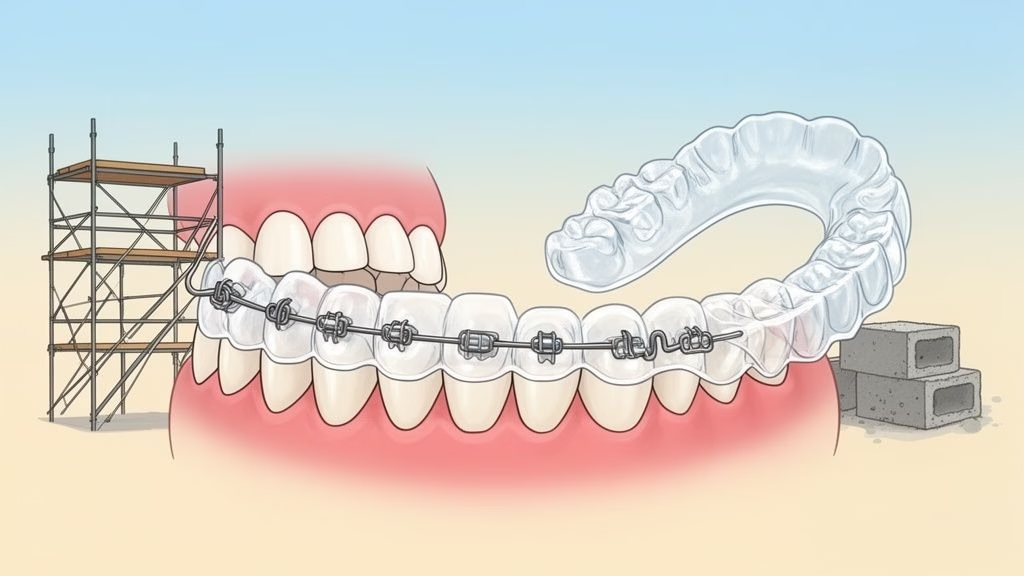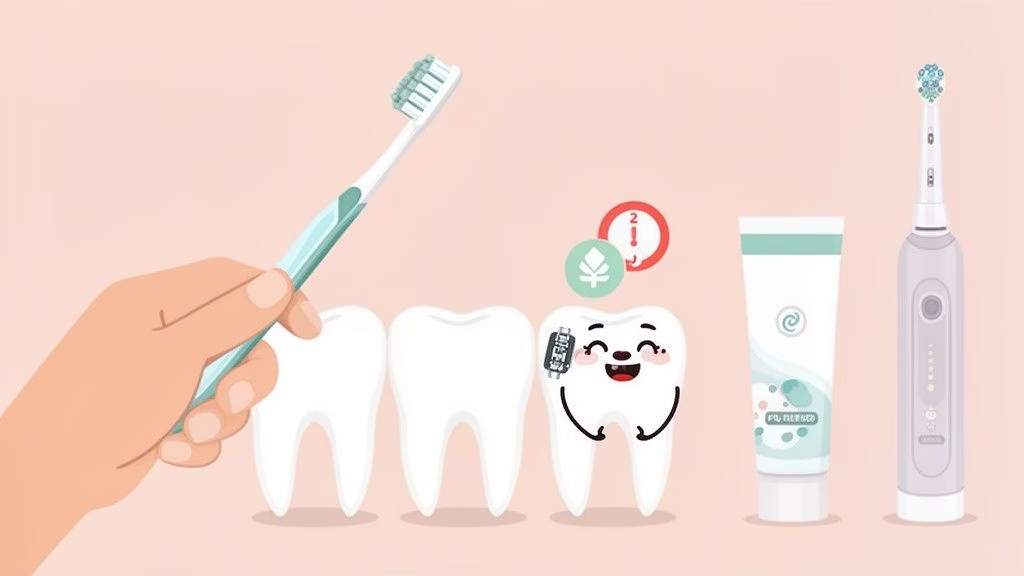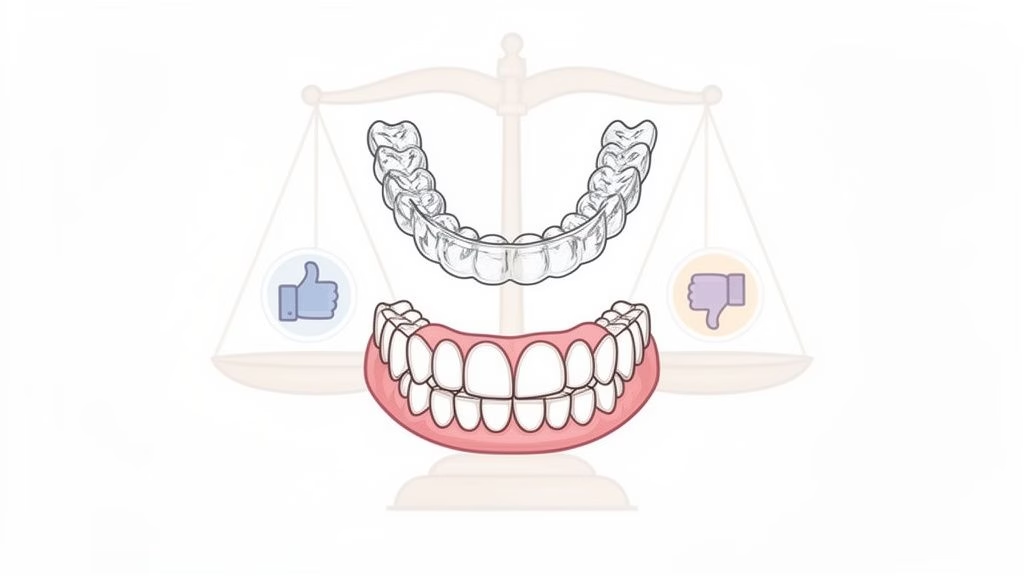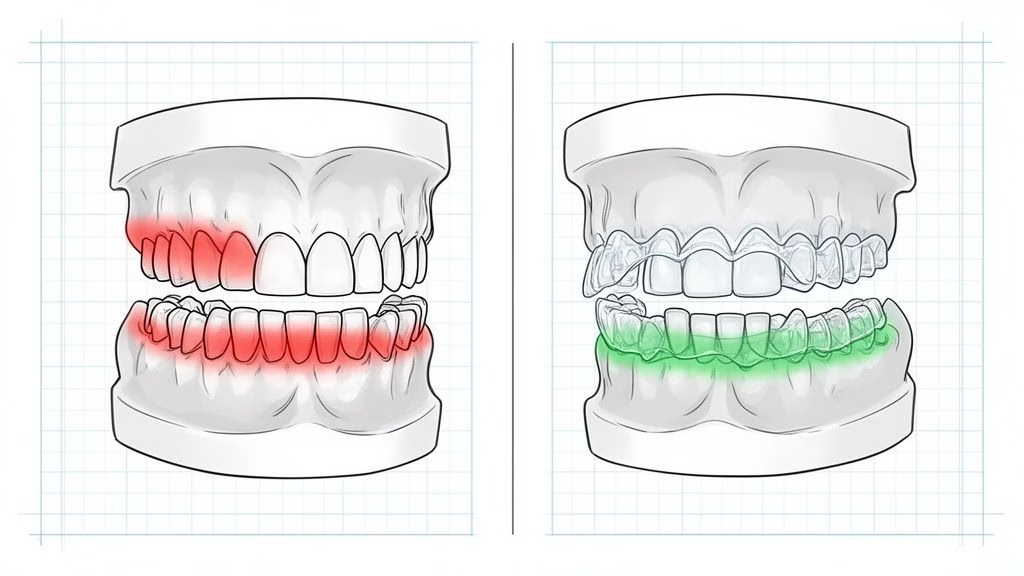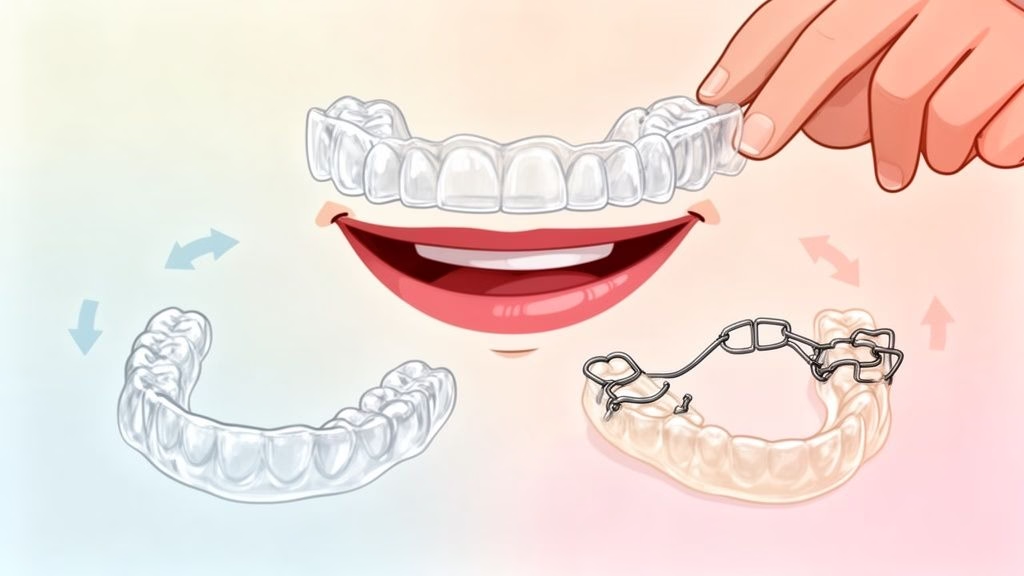Mental Health <> Mouth Connection

How mental health affects your mouth – and what you can do about it
When we think about mental health, we often focus on how it affects our mood, energy levels, or sleep. But did you know your mouth can also give you early warning signs that something isn’t quite right?
Your oral health and your mental health are closely linked – stress, anxiety, and low mood can all affect the way you care for your mouth and even how your body responds to bacteria and inflammation.
Here’s how to spot the signs and take action early, so your smile stays as healthy as your mind.
1. Spot the signs of mental health impacting your mouth
Mental health challenges often show up in subtle ways. Here are some key signs to look out for:
Tooth grinding (bruxism)
Stress and anxiety can lead to unconscious grinding, especially at night. You might notice:
Worn-down or flattened teeth
Jaw pain or clicking
Morning headaches
Dry mouth
Low mood or certain medications for anxiety or depression can reduce saliva flow, leading to:
Persistent dryness or sticky feeling
Bad breath
Increased risk of decay and gum problems
Mouth ulcers or cheek biting
Emotional stress can weaken the immune system or cause habits like biting the inside of your cheeks, leading to painful ulcers or sores.
Neglecting oral hygiene
During periods of depression or stress, daily routines like brushing and flossing can slip. Over time, this can cause plaque build-up, gum inflammation, or bad breath.
Jaw tension and facial pain
Emotional strain can cause us to clench our jaws, leading to aching muscles, tension headaches, or even clicking and popping noises in the jaw joint.
2. How to solve these issues
The good news is that small steps can make a big difference. for both your mental health and your mouth.
Acknowledge the mind–mouth connection
The first step is awareness. If you notice any of the signs above, it’s worth considering whether stress, anxiety, or low mood might be contributing factors, not just your dental hygiene habits.
Seek professional help early:
Dentist: can spot tooth wear, jaw issues, or gum disease early and recommend protective solutions such as night guards or fluoride treatments.
GP or mental health professional: can support with stress management techniques, therapy, or medication if needed.
Adopt simple coping strategies:
Mindfulness and relaxation: Breathing exercises, journaling, or meditation can help reduce clenching and grinding.
Routine reset: Setting small, achievable oral care goals (like brushing twice a day) can give a sense of structure.
Hydration: Drinking more water helps relieve dry mouth and wash away bacteria.
Address oral habits:
If you grind your teeth, speak to your dentist about a custom night guard to protect your enamel. For cheek biting or ulcers, topical gels or saltwater rinses can soothe irritation.
Regular check-ups
Seeing your dentist regularly means they can catch early signs of mental health–related oral issues before they become serious problems.
A healthy mind = a healthy mouth
Your mouth can be one of the first places to whisper that something’s wrong, long before bigger problems develop. By tuning in to the signs and acting early, you’re not just protecting your smile – you’re taking care of your whole self.If you’ve noticed any of these signs, don’t wait. Book a dental check-up and reach out for mental health support. You deserve to feel well, inside and out.Would you like me to make it sound a bit more conversational (like for a company blog) or keep this clean, professional style?
Last updated on October 10, 2025

Toothfairy Care Team
Toothfairy, is the world's smartest dental app, that connects patients to a dentist for a range of issues, from emergencies, cosmetics, prescriptions to virtual exams.
Toothfairy Care Team
Toothfairy, is the world's smartest dental app, that connects patients to a dentist for a range of issues, from emergencies, cosmetics, prescriptions to virtual exams.
